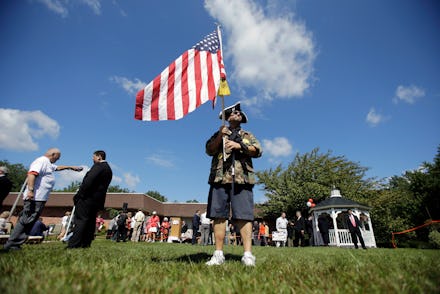Libertarians Don't Seem To Understand What 'Libertarian' Means

What does it mean to be a "libertarian"? A new analysis sheds some light on just how many Americans identify with the label, and how many are still unsure what the term really means.
The Pew Research Center recently asked respondents whether the term "libertarian" described their political beliefs, then posed a multiple-choice question to determine how many Americans know the definition of the term. To the first question, about 14% of the public said the term "describes them well."
The confusion arose in the multiple-choice portion of the survey. Respondents were asked to identify the term that fits the definition of "someone whose political views emphasize individual freedom by limiting the role of government," which is as succinct a definition of traditional libertarianism as any. Pew provided five possible answers: libertarian, progressive, authoritarian, Unitarian and communist. Seventy-seven percent of those who described themselves as libertarian answered the question correctly, compared to 57% of all respondents. This means 23% of the population who call themselves libertarians don't actually know what the term means.
23% of self-described libertarians don't know what the term means.
Pew hinted at the reasons for this discrepancy when their questions zeroed in on the specific policy views of the 11% who call themselves libertarian and know what the word means:
Self-described libertarians tend to be modestly more supportive of some libertarian positions, but few of them hold consistent libertarian opinions on the role of government, foreign policy and social issues.
In other words, even those who call themselves "libertarians" aren't much more likely to hold truly libertarian views on specific issues, meaning the term can accommodate a wide range of policy views. Pew found that 12% of Republicans and 6% of Democrats identify with the label.
Libertarians are more likely than the general public to support marijuana legalization and are more sympathetic to business when it comes to government regulation, but their views on foreign policy fall in line with the views of Americans at large.
As Pew notes:
Libertarianism is generally associated with a less activist foreign policy, yet a greater share of self-described libertarians (43%) than the public (35%) think "it is best for the future of our country to be active in world affairs."
This survey shows just how far libertarians have to go to be considered a coherent political force in the public's view, and the confusion among even those who identify with the term. If libertarians can't even agree on what they agree on, we have a lot more waiting to do before we reach a "Libertarian Moment."
Read the Pew poll's results and methodology here.